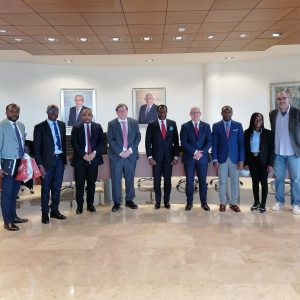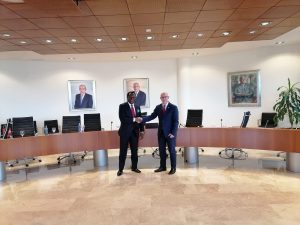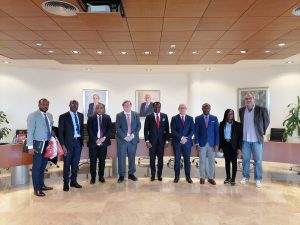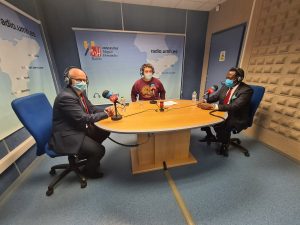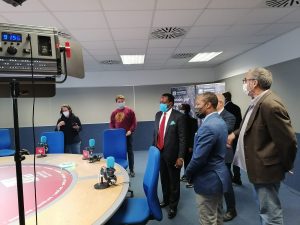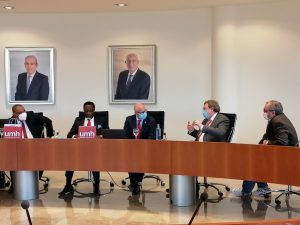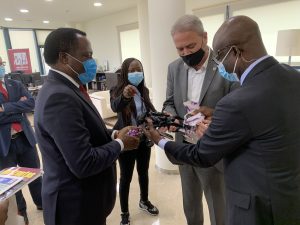UMH Welcomes National University of Equatorial Guinea
The Miguel Hernández University of Elche (UMH) has received a visit by representatives from the National University of Equatorial Guinea (UNGE). Their meeting served to bring both institutions closer together, to learn more about this Spanish university, to analyze exchange programs and academic offerings, as well as to strengthen links of collaboration. UMH Rector, Juan José Ruiz, and Vice Rector for International Relations, Vicente Micol, acted as hosts and highlighted various possibilities for collaboration between both institutions that are going to be implemented.
Also accompanying Vicente Micol from the UMH were Deputy Vice Rector for International Relations – International Projection, José Luis González, and UMH Development Cooperation and Volunteerism Director, Juan José Ballesta. In the Meeting Room of the Board of Trustees, they met with UNGE representatives, including its Rector, Filiberto Ntutumu; Director of Cooperation and Internationalization, professor Antonio Nsue Ada; Director of the Office of the Rector, José Martin Nguema Nchama; Manager of Protocol, Bonifacio Fla Ndong; Director of Communication, Filomena Avomo; in addition to diplomatic personnel from the Guinean Embassy in Spain.
Topics discussed during their meeting included renewing the current agreement, and progress was made on new possibilities for teaching and research collaboration. Furthermore, the UNGE showed interest in the training offered at the UMH, and close attention was paid on masters from the branches of the health sciences and engineering, plus other graduate-level programs, and exchanges involving both faculty and students, to take advantage of one especially common link between both universities, the Spanish language.
Following the meeting, the Equatorial Guinean delegation toured the Elche Campus and visited the facilities of both UMH Television and Radio. In the latter space, UNGE Rector, Filiberto Ntutumu, and Vice Rector for International Relations, Vicente Micol, were interviewed.
The UNGE is a young university that has also turned 25 years of age. It is home to 8000 students spread over various local and continental campuses, and it stands out for its dynamism, growth, and for being a key catalyst for growth in that African country. The language spoken there, as well as similarities with its academic structure, the education it offers, plus the fine predisposition of the senior managers at that university, will facilitate closer ties between both institutions in the short term.
